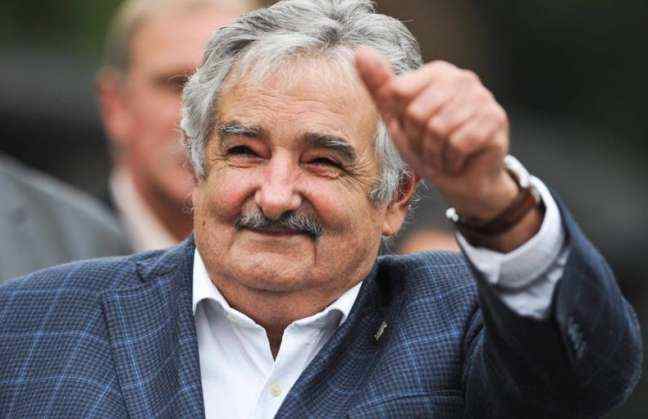
Uruguay agrees to accept ‘Gitmo’ detainees as refugees
President José Mujica of Uruguay confirmed Thursday (March 20) that Uruguay will shelter as “refugees” at least five detainees at the U.S. naval base at Guantánamo Bay, Cuba. He will do so at the request of President Obama, Mujica said.
The Uruguayan weekly Búsqueda said that U.S. Secretary of State John Kerry personally phoned Mujica to thank him on Monday.
Mujica said that he based his decision on his respect for human rights and told the local press that “they’ll come as refugees and Uruguay will give them a place [to live]. If they want to bring their families, that’ll be all right, as simple as that.”
“If they want to make their nest here and work here, they may stay in the country,” he added. The agreement is for the detainees to remain in Uruguay for at least two years, a government source told Agence France-Presse.
“Don’t make a novel out of it,” the 78-year-old Mujica told reporters in his usual folksy manner. “It’s a request over an issue of human rights.”
“There are 120 guys who have been imprisoned for 13 years,” he said, while touring a farm fair in the city of Soriano. “They never saw a judge, they never saw a prosecutor, and the president of the United States wants to take that problem off his shoulders. The Senate is demanding certain things from him, so he asked a lot of countries if they could give refuge to some and I told him yes.”
Mujica reminded his listeners that he himself was imprisoned for his activities as a Tupamaro guerrilla in the 1970s.
“I spent a bunch of years in prison and I’m rotten sick of all the talk. This is what human rights is all about,” he said.
Asked if he asked Obama for something in return, the president joked: “I don’t do favors for nothing; I ask for an I.O.U.” Then he responded seriously: “No, this has to be done just because.”
Búsqueda magazine said that Obama had raised the issue with Mujica in recent weeks through “emissaries.”
Most of the prisoners at the “Gitmo” base were detained in Afghanistan on suspicion of terrorism, after the Sept. 11, 2001, air attacks in the United States.
After being elected in 2008, Obama promised to shut down the Guantánamo base. Last April, he said that the prison there “is not necessary” to guarantee the security of the United States.
The Miami Herald on Thursday was told by the prison camp commander, Rear Adm. Richard Butler, that some captives had asked for Spanish-language classes “following a visit to the detention center a few weeks earlier by a delegation from Uruguay.”
A civilian employee at the camp told The Herald that “some of them are very enthusiastic about learning.”
The Uruguayan newspaper El Observador cited unidentified sources in the government as saying that the turnover of prisoners will be made before March 2015, when Mujica’s term of office ends. The detainees will be “low-dangerousness” individuals and, because of their status as refugees, will be released to the general population.
“We’re nobody’s jailers,” the sources told the newspaper to explain why the government “would never agree” to place the refugees in Uruguayan prisons.
The government sources told El Observador that Washington considers Mujica “a regional leader” and that’s why it asked for his help. The request was discussed for several months and involved consultations with the government of Cuba, where the prison is situated.
According to Búsqueda weekly, Mujica discussed the matter in late January with President Raúl Castro of Cuba, who supported the idea, during the summit of the Community of Latin American and Caribbean States (CELAC).
The government sources described the Obama-Mujica accord as “a very important gesture of foreign policy.”
A U.S. State Department official confirmed to the Reuters news agency that “the United States has engaged the government of Uruguay for help in closing the detention facility, as we have engaged a range of governments.”
The official, who asked for anonymity, declined to give additional information, saying that “we cannot comment on sensitive diplomatic discussions.”
In Montevideo, the U.S. ambassador, Julissa Reynoso, told The Associated Press that “we’re still talking” with the Mujica administration. “We’re consulting and in conversation, but there’s no deal to make a process like this in Uruguay,” she said in a radio interview. It was unclear whether she was referring to the number of detainees that would eventually be turned over to Uruguay.


